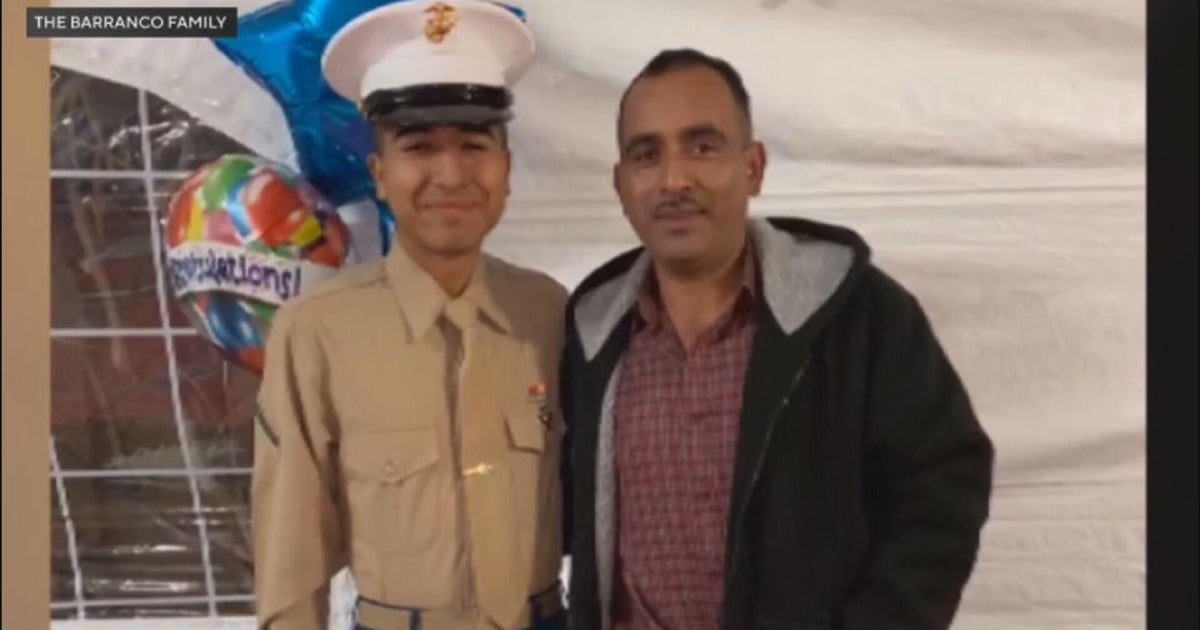Counselor: Manning's History Showed Self-Harm Risk
FORT MEADE, Md. (AP) -- An Army private charged with sending U.S secrets to the website WikiLeaks had a history of suicidal thoughts and aloof behavior that outweighed a psychiatrist's opinion that he posed no risk to himself, two former counselors testified Sunday.
Army Staff Sgt. Ryan Jordan and Marine Master Sgt. Craig Blenis testified on the sixth day of a pretrial hearing for Pfc. Bradley Manning at Fort Meade, near Baltimore.
The hearing is to determine whether Manning's nine months in pretrial confinement at the Marine Corps brig in Quantico, Va., were so punishing that the judge should dismiss all charges. The 24-year-old intelligence analyst is accused of sending hundreds of thousands of classified documents to the secret-spilling website in 2009 and 2010.
Military judge Col. Denise Lind recessed the hearing until Wednesday. It's scheduled to run through Dec. 12.
The counselors, both of whom worked in the brig, sat on a board that recommended to the brig commander that Manning remain in maximum custody and on either injury-prevention or suicide-risk status -- conditions that kept him confined to his cell 23 hours a day, sometimes with no clothing.
Jordan said under cross-examination by defense attorney David Coombs that besides the mental-health report, he considered evidence that Manning had contemplated suicide after his arrest in Iraq in May 2010. The evidence included a noose Manning had fashioned from a bedsheet while confined in Kuwait, and a written statement he made upon arrival at Quantico in July 2010 that he was "always planning and never acting" on suicidal impulses.
Jordan acknowledged Manning had been a polite, courteous and nearly trouble-free detainee at Quantico.
"Wouldn't his past six months of performance be an indicator of his potential for future behavior?" Coombs asked. But Jordan maintained that Manning's unwillingness to converse with him and other brig staff was a warning sign he was at risk of self-harm.
Jordan said he considered the opinion of the brig psychiatrist, Navy Capt. William Hocter, that Manning was no longer at risk of self-harm. But Jordan said the weight he gave to Hocter's views was tempered by the fact that another detainee had recently killed himself after his custody status was reduced on Hocter's advice.
"I would consider it, but I would always consider it with care, sir," he told Coombs.
Blenis, who spent more time with Manning, said Manning chose not to speak most of the time except for short, yes-or-no answers. He said Manning spurned his offers to play chess or work brain teasers by arrogantly responding, "They're a little below my level."
"I've got a person not communicating with me that's sitting in his cell, not doing anything," Blenis said.
He said he supported the brig commander's decision in March 2011 to strip Manning of all clothing at night and place him on suicide watch after Manning told another staffer that if he really wanted to kill himself, he could use the elastic waistband on his underwear.
"If someone tells me they're going to shoot themselves in the face, I'm not going to give them a gun," Blenis said.
Later Sunday, the defense showed an approximately 12-minute video clip of Blenis talking with Manning through the bars of his cell about the detainee's frustration with his situation in January 2011.
"Every day that passes by I'm getting increasingly frustrated," Manning told him.
Manning was moved in April 2011 to pretrial confinement at Fort Leavenworth, Kan. He's been held there in medium custody since then.
Earlier Sunday, the military judge said Manning's trial, previously set to begin Feb. 4, would be pushed back to sometime in March due to lengthy pretrial proceedings.
Manning is charged with 22 offenses, including aiding the enemy, which carries a maximum penalty of life in prison.
(Copyright 2012 by The Associated Press. All Rights Reserved.)







